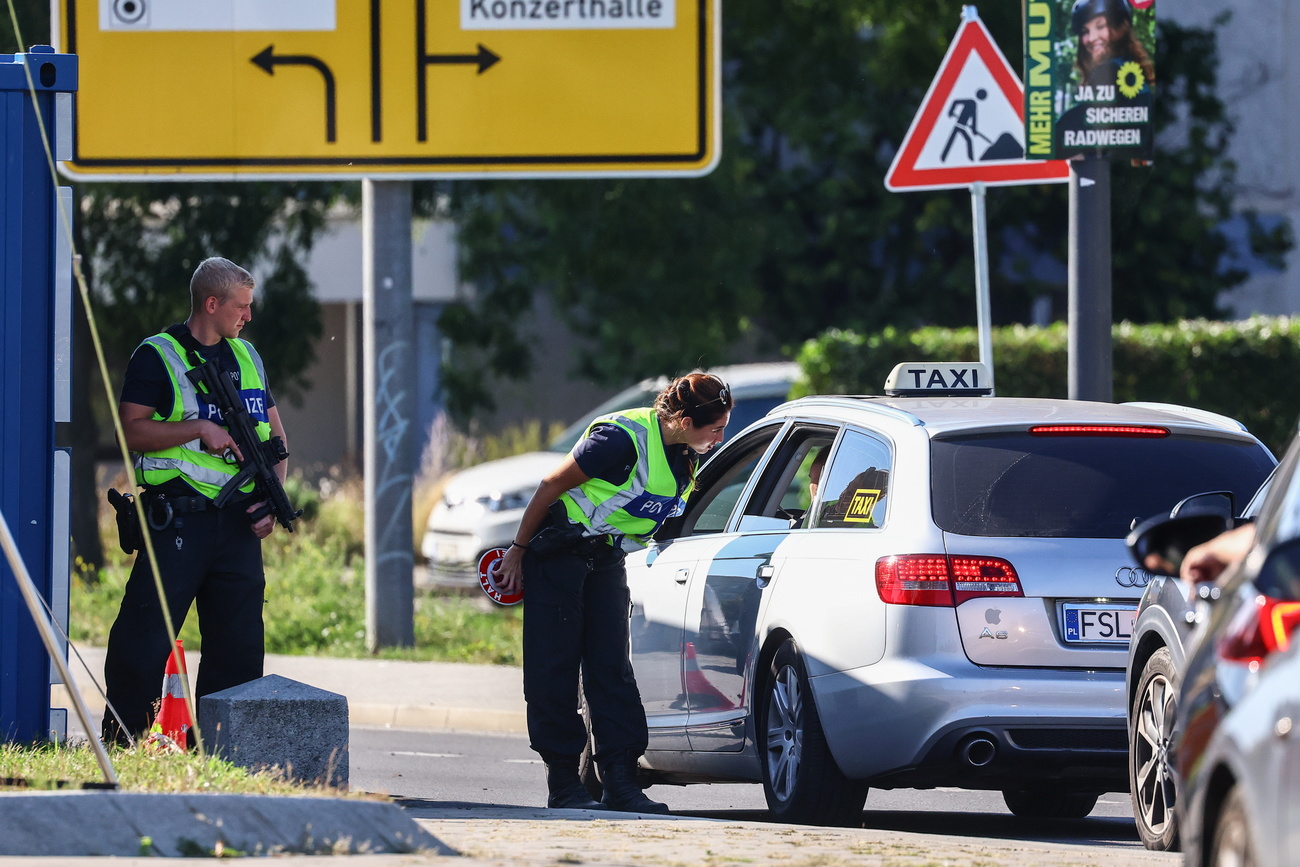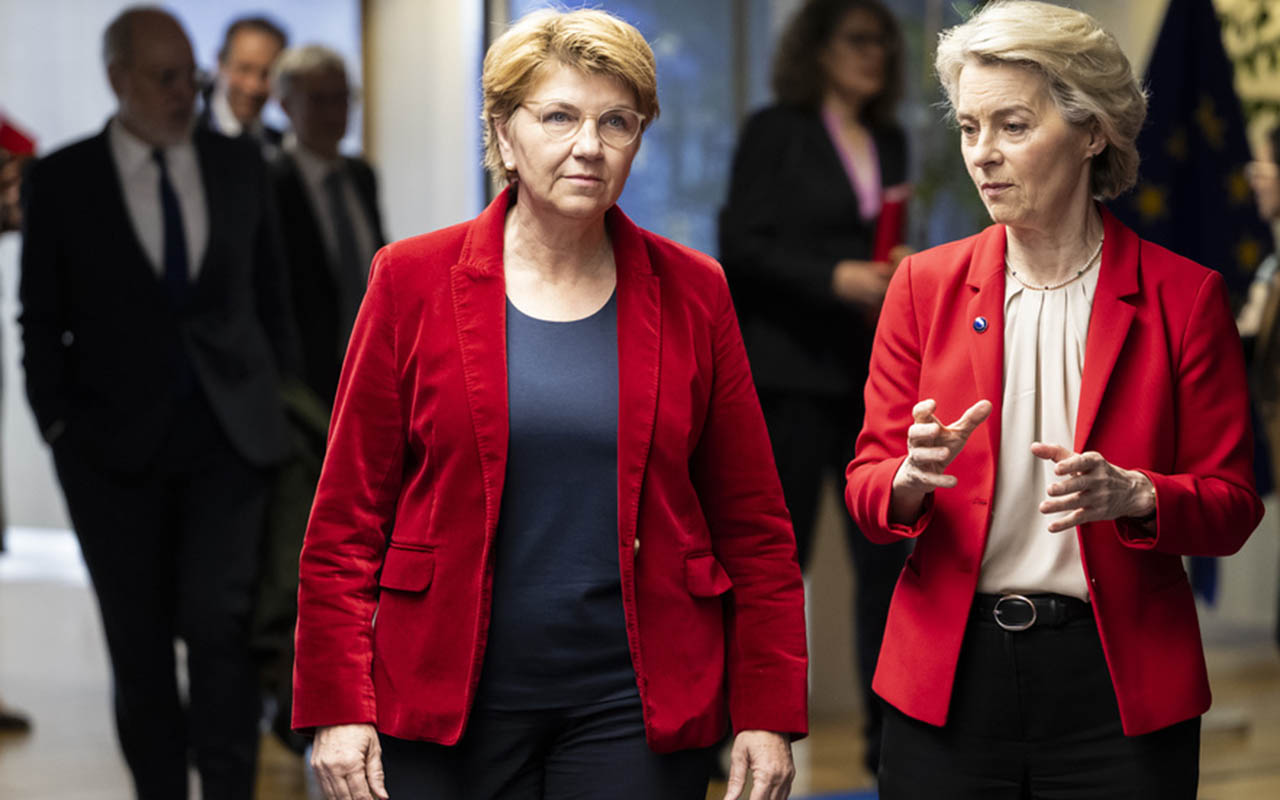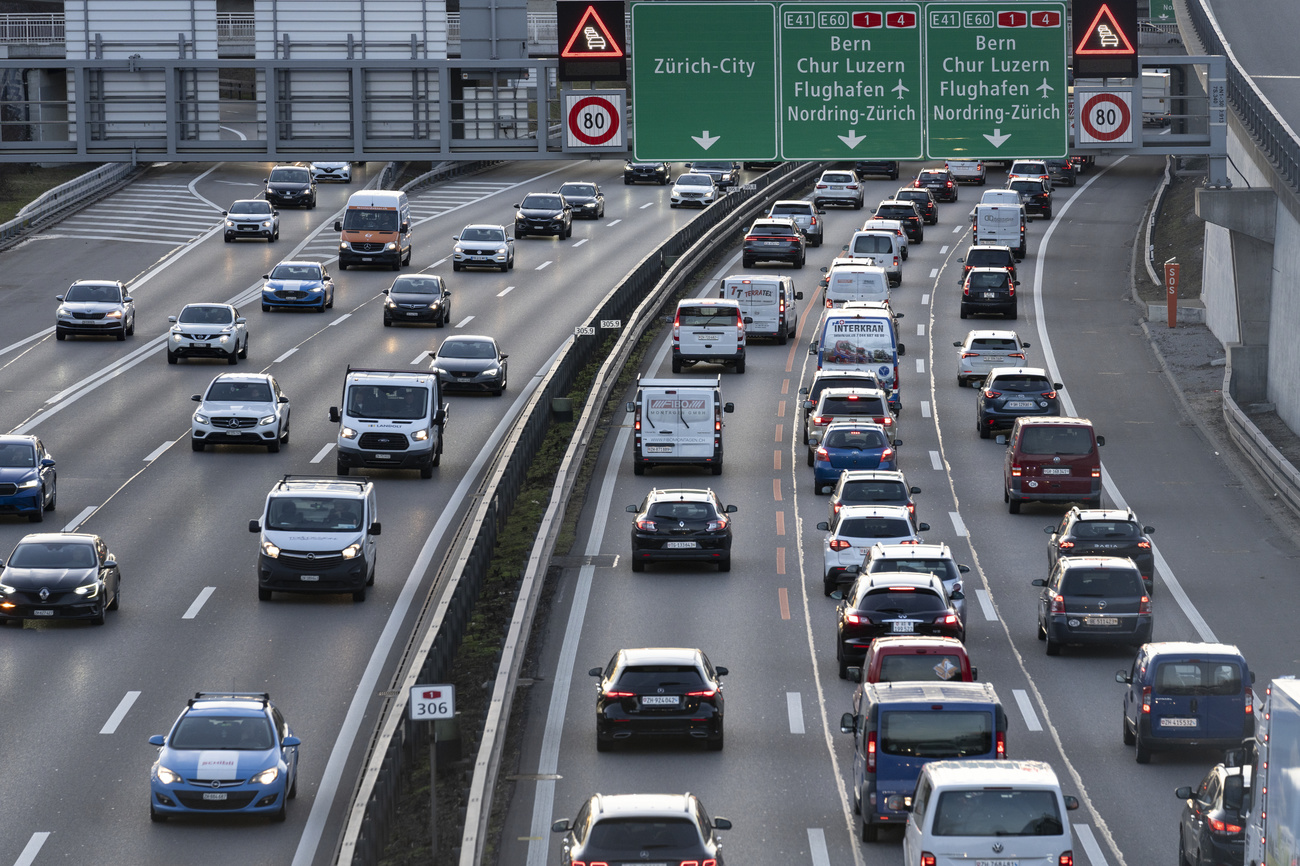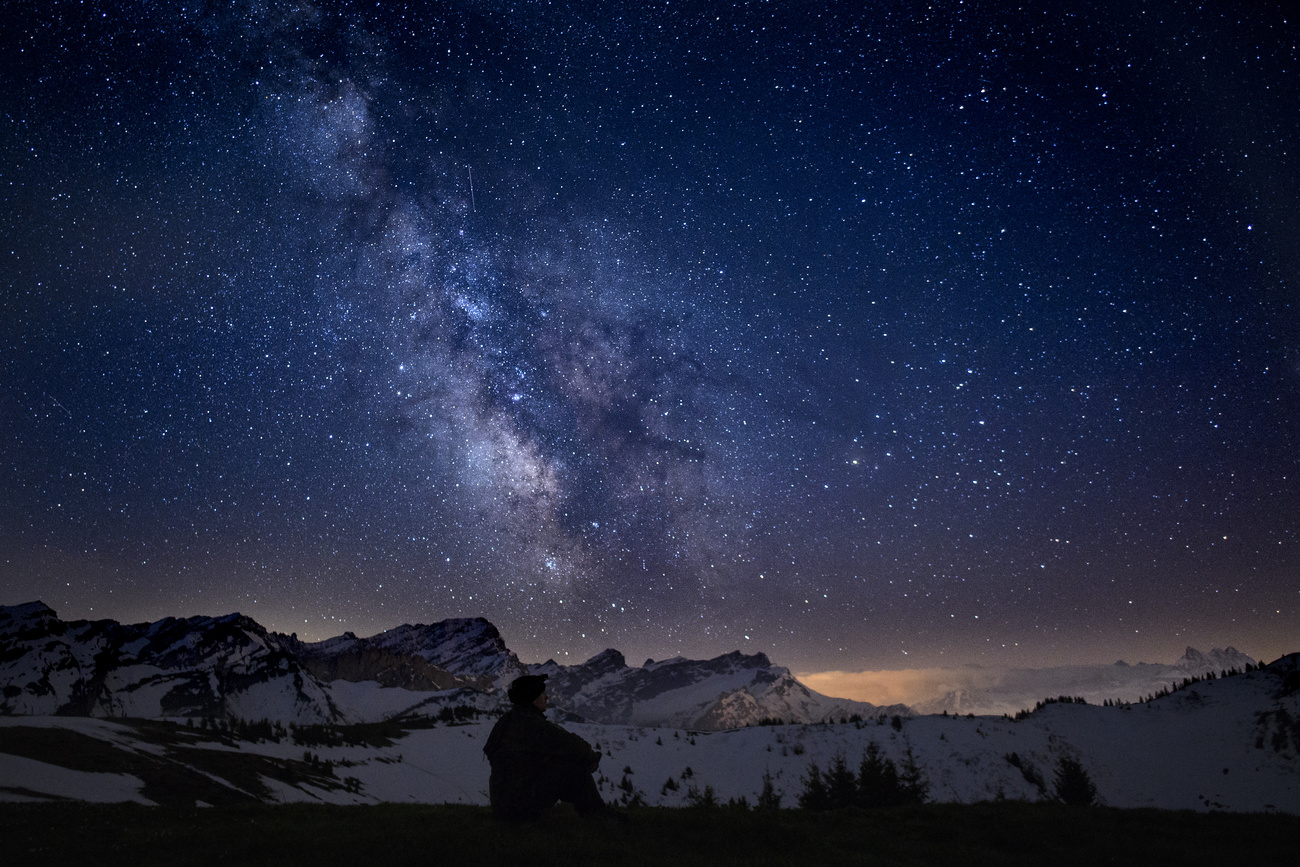
Switzerland Today
Greetings from Bern!
It’s Nobel Prize week, and although Swiss scientists drew a blank this morning in physiology and medicine, overall Switzerland is one of the most successful countries when it comes to receiving the call from Sweden and Norway. Here are other Swiss news and stories on Monday.

In the news: A UN report criticising structural racism in Switzerland includes “misunderstandings”, according to the Swiss Ambassador to the UN Human Rights Council.
- Ambassador Jürg Lauber said today that while the fight against racism was urgent, a more detailed investigation of structural racism – flagged by a UN working group in January – was needed. “Numerous general conclusions seem to be based on only one or several individual cases,” he complained.
- Geneva police had to intervene yesterday to separate supporters of right-wing Brazilian president Jair Bolsonaro and his leftist rival Luiz Inácio Lula da Silva. The supporters of the two politicians, who are battling it out in a presidential election, clashed at the Geneva polling station for the Brazilian community.
- Swiss scientists will have to wait at least another year to win the Nobel Prize in Physiology or Medicine. This year’s awardExternal link this morning went to Sweden’s Svante Pääbo for his discoveries on human evolution. Rolf Zinkernagel remains the most recent Swiss winner in this category, having won it in 1996 for discovering how the immune system recognises virus-infected cells. Tomorrow, Swiss physicists will be crossing their fingers.

The 18th Zurich Film Festival (ZFF) offered a colourful palette of unconventional approaches to Swiss history: from a reassessment of national painter Albert Anker to a fascist-hunting Heidi.
One of the most anticipated films at this year’s festival, which ended yesterday, was Mad Heidi. First announced in 2017 and, after an impressive crowdfunding campaign, finally ready, Mad Heidi is a gory action-comedy in which a twentysomething Heidi rises with her fellow peasants to save her motherland, which has fallen into the hands of Nazi-like fascists. A trailer existsExternal link, but being hardcore Swissploitation it’s probably not everyone’s cup of tea! The film is certainly not a piece of pointed political satire, but it does signal a renewed readiness in popular Swiss filmmaking to rethink and reframe national icons and received historical wisdom – such as the comforting tale of the defiant Alpine republic where fascism could never take root.
Beyond Switzerland’s role in the Second World War, the Zurich Film Festival also took to task the conservative nostalgia that is often associated with late-19th-century Switzerland. There is, for example, Heinz Bütler’s documentary Albert Anker – Malstunden bei Raffael (Painting Lessons with Raphael). Today, Anker, often called Switzerland’s “national painter”, is perhaps best known for his scenes of traditional Swiss village life – and for being the favourite painter of right-wing billionaire Christoph Blocher. Anker has, in short, become a symbol for the reactionary dream of returning to an imagined idyllic past. But Bütler, whose film never mentions Blocher, seems intent on salvaging Anker from the political appropriation he has fallen prey to, questioning whether it’s even fair to blame the artist for the patriarchal conservatism with which his works are commonly associated.
But the ZFF also features a rebuttal of sorts to this comparatively positive view of Anker’s art – namely Carmen Jaquier’s Foudre (Thunder). Like Bütler, Jaquier also displays a keen sense of history as a collection of narratives: set in a mountain village around 1900, Foudre opens with a series of photographic and artistic impressions of rural Swiss life at the turn of the century, before segueing into a shot of a woman striking a painterly pose and revealing that she has, in fact, been shackled to a table. From the beginning, it is clear that this is a film interested in uncovering and de-romanticising the multi-layered misogyny embedded in the kind of traditional lifestyle that Anker and his contemporaries helped enshrine as part of Swiss national identity in the late 1800s.

The energy crisis is causing electricity prices to soar across Europe, including in Switzerland. We explain everything you need to know about the Swiss electricity market.
We answer six central questions, including who the main electricity players are in Switzerland, how electricity prices are set, and what the consequences are for Switzerland of the international rise in electricity prices.
More

In compliance with the JTI standards
More: SWI swissinfo.ch certified by the Journalism Trust Initiative








